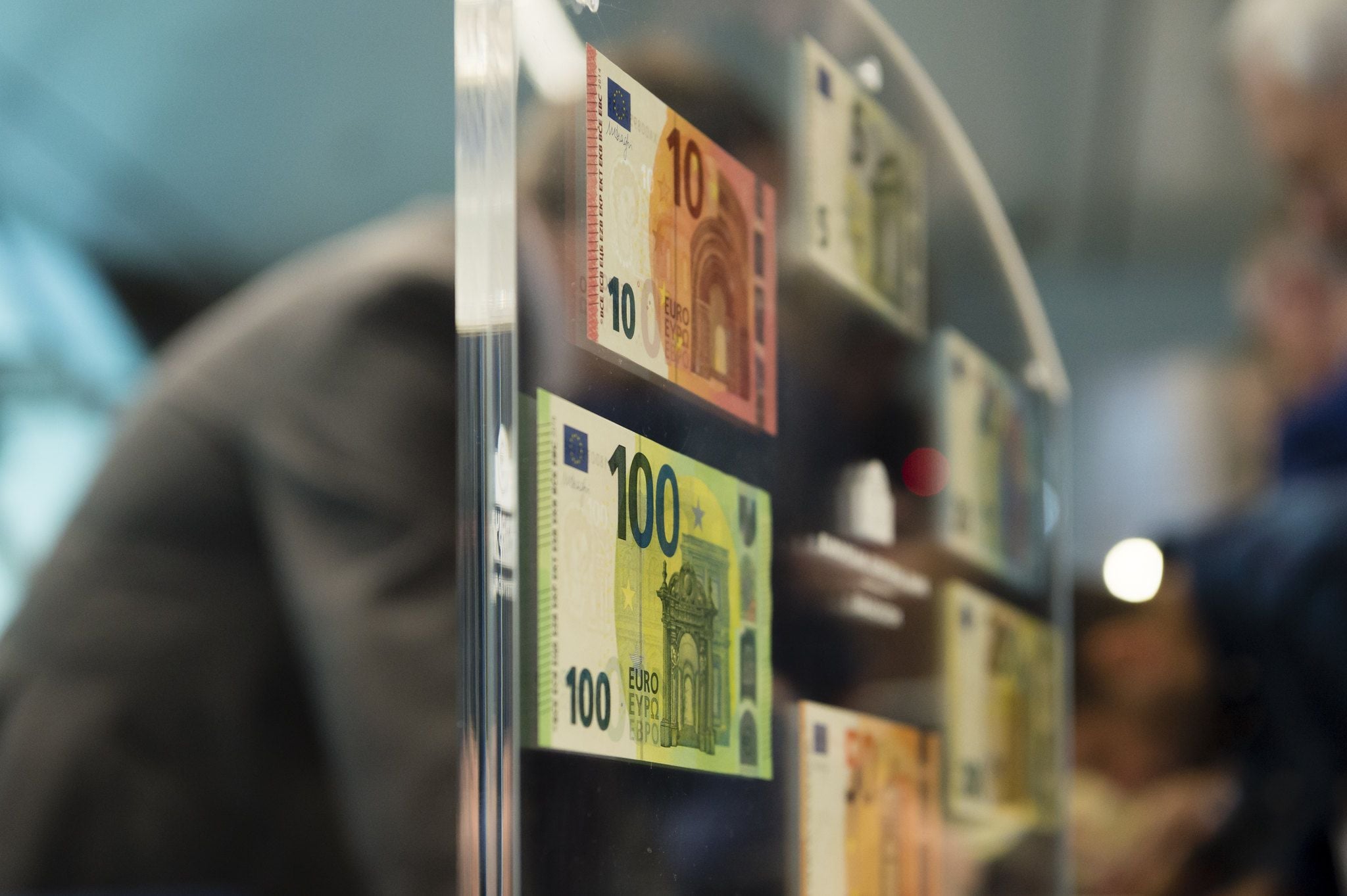Pound / Euro higher in wake of ECB Decision, But Move Set to Fade
- Written by: Gary Howes

Image © European Central Bank
The Euro was lower in the wake of the European Central Bank policy update that offered no hint that interest rate rises are imminent, ensuring the central bank remains in the slow lane in the global race to try and stave off surging inflation.
The ECB's guidance was largely unchanged on March's update and therefore disappointed against rising expectations that policy makers in Frankfurt would lay further ground for a 2022 rate hike.
"Inflation is naturally an ongoing concern, but the ECB did not signal an end to bond purchases and stated they would continue to buy assets even after they begin raising rates. The EUR moved lower suggesting that the ECB may be behind the curve," said Chris Wilgoss, Head of Global Markets Treasury, Crown Agents Bank.
The ECB said in a statement inflation has increased significantly and will remain high over the coming months, "mainly because of the sharp rise in energy costs" suggesting it was not yet overly concerned broader price pressures were emerging in the economy.
The European Central Bank announced in March that its asset purchase programme would be brought to an end one quarter earlier than before and the Euro rose in response to the 'hawkish' turn.
Ima Sammani, FX Market Analyst at Monex Europe, said heading into today’s meeting expectations for another 'hawkish' shift were elevated.
"However, the statement was not as hawkish as some had been looking for, as there were no new policy announcements nor any changes in tone," she said.
Some investors were anticipating a potentially more 'hawkish' outcome - as evidenced by the fall in Euro exchange rates - given inflation massively overshot expectations in March while risks remain elevated as the war in Ukraine continues.
But there was no mention of a need to bring forward interest rate rises, meaning the 60 basis points of hikes the market was expecting for 2022 by investors will unlikely be achieved.
Compare Currency Exchange Rates
Find out how much you could save on your international transfer
Estimated saving compared to high street banks:
£2,500.00
Free • No obligation • Takes 2 minutes
In a press conference ECB President Christine Lagarde said the ECB will seek to end its asset purchase programme (AP - quantitative easing) before raising rates, and that the first hike would come "some time after" the ending of the AP.
This would emphasise that the earliest rate hike would likely be in December, suggesting anything near the expected 60 basis points of hikes by year-end makes for far too aggressive an assumption.
"Nor was there any mention of the new emergency tools that the ECB is reportedly looking into," says Sammani.
Media reports suggested the ECB is working on a "crisis tool" to deploy in the event of a surge in bond yields of some 'peripheral' economies.
The ECB's staff were reportedly designing a 'backstop' that would be available for the Governing Council to use against debt-market stress caused by shocks outside the control of individual governments.
"As the ECB maintained a cautious tone even as inflation expectations ramped up further over the last month, markets took this as a slight dovish surprise, undoing some of the hawkish pricing," says Sammani.
The Pound to Euro exchange rate rose to a high of 1.2073 in the wake of the announcement, the Euro to Dollar exchange rate retreated back below 1.09 to 1.0880.
The ECB event is unlikely to prove a massive game changer for the Euro at this point, therefore the initial bout of Euro weakness might be faded.




